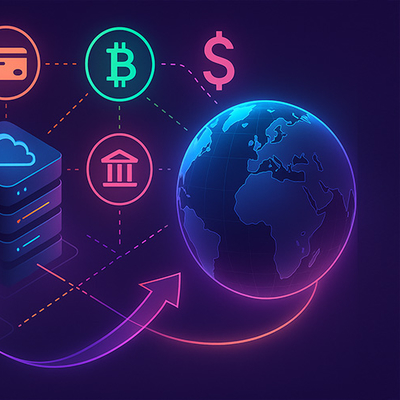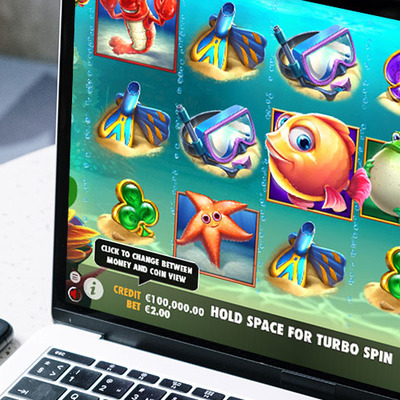ESG for iGaming: Sustainable Infrastructure in Virtual Casinos
Online entertainment is becoming one of the most technologically advanced sectors of the digital economy. However, with the growth of server capacity, live streaming, and global CDN networks, a new challenge is appearing: the sustainability of betting operators.
Smart Money experts explain how providers manage energy consumption, reduce their carbon footprint, and improve business efficiency.
Why ESG and the Green Agenda Are Relevant for the Industry

Today, online casinos and bookmakers seem “digital” and almost weightless, but behind every new spin and live stream, there is huge energy consumption. Powerful servers, data centres, and cooling systems generate CO2 daily and create an enormous environmental footprint.
As Internet traffic grows, the pressure on server solutions also increases, especially due to live streaming, 3D slots, and interaction with high-load entertainment portals.
For this reason, it is important for operators to not only optimise their gaming products but also do so energy-efficiently. These include switching to green information centres, reducing CPU/GPU load, using next-generation codecs, and much more.
The environmental agenda is becoming more relevant for several reasons:
- Tightening of regulatory policies. In many EU countries, reporting on the ecological impact is mandatory.
- Interest from investors. Institutional funds and banks are increasingly supporting companies with transparent sustainability goals.
- Mindfulness of clients. Younger players choose iGaming brands that position themselves as responsible and eco-friendly.
Thus, green practices are becoming not just a trend, but a strategic advantage for entrepreneurs.
How Operators Affect the Environment
Let us consider how the ecological footprint of entertainment companies is formed.
Data Centres
Online casinos work 24/7, and to achieve this, they need powerful servers. They are responsible for accepting bets, distributing traffic, and launching live streams.
Today, these solutions are the main source of energy consumption in the iGaming industry. According to the International Energy Agency (IEA), such facilities consume 415 terawatt-hours (TWh) per year, which is 1.5% of the world’s total electrical energy production.
To reduce their negative impact, many operators are switching to renewable sources. 52% of casino brands already use servers that work based on clean power.
This migration gives good results. In just 4 years, the industry has reduced its carbon footprint by 15%, in part thanks to green hosting.
For example, the Betsson international provider moved its information centres to Norway and Sweden and began using hydroelectricity. This reduced the firm’s CO2 emissions by 3,500 tons per year.
Cooling
The efficiency of server rooms is also not ideal.
A significant part of the power is spent not on supporting computing capacities, but on associated infrastructure, such as cooling. According to expert estimates, such systems can consume up to 40–45% of the data centres’ total energy consumption.
As a result, operators increasingly perform the following actions:
- launch efficient refrigeration systems;
- implement liquid-coupled solutions;
- optimise server placement.
Customer Traffic and Green Rendering
Live broadcasts, streams, and complex graphics require significant resources from both casinos and user devices. To reduce consumption, many platforms are switching to adaptive codecs and enhancing streaming.
About 27% of gambling companies have already implemented green algorithms in their work. Entrepreneurs use energy-efficient compression and improved cryptography to reduce power consumption without sacrificing the quality of casino content.
E-Waste
Online operators use huge amounts of server hardware. To ensure a stable work of platforms 24/7, systems must be updated every 3–5 years. This creates a constant flow of outdated electronics.
The term “electronic waste” includes:
- server processors and motherboards;
- data storage systems (SSD, HDD);
- network switches and routers;
- RAM modules;
- lithium batteries for backup power;
- PSUs and cabling infrastructure.
Electronics contain heavy metals (cadmium, quicksilver, lead), plastic, and toxic components. If such equipment is thrown away without recycling and ends up in landfills, it leads to soil and water pollution.
Energy Profile for iGaming Brands

It is a comprehensive description of where and how much energy an enterprise uses, and what environmental footprint is generated by its work.
Casino operators (bookmakers, gaming sites, and live studios) are considered the owners of a digital business. The main consumers in this sector are data centres, cloud storage, CDN servers, streaming studios, and offices.
Most of their carbon footprint lies outside the direct control of entrepreneurs, but on the part of software vendors and users.
Main Types of Emissions
Experts distinguish several categories of pollution.
Scope 1
For the owner of a classic portal, the share of direct emissions is minimal, but there are also real sources of CO2. These include the company's offices and studios, corporate fleet, and on-premises server rooms.
This category is the easiest to monitor. Operators can directly replace equipment, switch to electric vehicles, or remove diesel generators.
Scope 2
This is the indirect pollution from purchased energy: electricity, heat, and cold.
For online casinos, the classification consists of 2 major items:
- power for offices and studios (lighting, cameras, illuminating devices for live shooting, and other equipment);
- energy from data centres, hosting, and rented server rooms.
The category is measurable for most iGaming platforms and can make up a double-digit share of their total emissions.
Scope 3
Such pollution comes from:
- the production and supply of servers, slots, and cameras;
- use of cloud providers and CDN storage;
- trips of partners and employees;
- marketing, logistics, and financial transactions.
For many operators, Scope 3 accounts for 70–90% of the emitted greenhouse gases. This is because third-party data centres and cloud services are not managed directly.
Carbon Footprint Metrics
To understand how clean a server room or CDN storage is, experts use the following practical KPIs:
- PUE (Power Usage Effectiveness). This is the ratio between the energy used by an info centre and its IT equipment.
- CUE (Carbon Usage Effectiveness). The metric reflects the real carbon intensity of the solution’s operation.
- WUE (Water Usage Effectiveness). The parameter helps measure the amount of water consumed per unit of IT load. The coefficient is of great importance in regions with resource scarcity.
- IT Equipment Utilisation. This indicator links useful work (rates per second, video streams) to energy consumption, assessing the efficiency of CDN servers.
ESG Reporting
Today, the green agenda is becoming part of the overall business strategy of iGaming companies. According to industry reviews, 66% of operators measure their CO2 pollution annually and publish complete statistics.
Let us look at the documents used by entrepreneurs:
- GHG Protocol. This is the basic standard for taking into account Scopes 1, 2, and 3. It defines testing methods, emission classification, and key metrics for monitoring pollution levels.
- CSRD. The set of rules is intended for EU companies. It introduces detailed ESG reporting, including the disclosure of Scopes and climate-related risks.
Local regulators (such as the UK Gambling Commission or MGA) are increasingly demanding the release of sustainability information and compliance with corporate norms.
How Online Casinos Reduce the CPU/GPU Load for Streams

Live dealer entertainment is one of the most resource-intensive types of content in the iGaming niche.
The operation of each table (roulette, baccarat, or poker) is transformed into a 24/7 video broadcast. A single studio can have dozens of such objects, which is why energy usage and pollution increased a hundred times.
Let us look at how casino owners reduce CPU/GPU load without losing the quality of gambling products:
- Hardware encoding instead of a central processing unit. Video streams are encrypted not by standard solutions, but by specialised chips (NVENC, Intel Quick Sync). This approach reduces the load by 60–80%, minimises power consumption, and ensures stable operation of live portals.
- Switching to modern codecs (H.265/AV1). They provide the same image and sound quality, but take up less space.
- Quality distribution by the frame (Region of Interest). In this case, key elements (cards, ball, and dealer's hands) are transmitted in higher quality. The visual appearance remains the same, and bandwidth usage is reduced by 20–40%.
- Edge-encoding encryption. Part of the work is performed by CDN nodes, rather than the operator's central servers. This evenly distributes the load on the equipment, and live content is scaled better and faster.
Achievements of Industry Leaders
28% of online operators set the goal to become carbon neutral by 2030. They are already actively participating in environmental initiatives, partnerships, and offset programs.
Entain
The company was one of the first to publicly post its emissions data.
In 2018, the provider set an ambitious target promising to reduce pollution of the Scope 1, 2, and 3 categories by 90% by 2035.
Even today, 80% of the brand’s electricity comes from renewable sources. This strategy has been implemented in all of the firm’s key markets, including Europe and Latin America.
The supplier has passed an independent verification of info on the emissions by SBTi. Its reporting complies with international norms, including the GHG Protocol.
Flutter Entertainment
The gambling operator is converting its offices, data centres, and technical facilities in Europe to renewable energy. In some countries, the share of clean power reaches 99%.
The firm is actively migrating its infrastructure to the AWS, Google Cloud, and Microsoft Azure clouds. This approach reduces key carbon footprints (CUE, PUE), enables flexible scaling, and provides more efficient cooling.
Flutter is integrating the ESG assessment into its processes of procuring the hardware, verifying:
- the energy performance of servers and network devices;
- the ability of suppliers to service and recycle equipment;
- the presence of partners' individual climate targets.
Kindred Group
The brand focuses on the most underestimated emission sources, including employee travel and the carbon footprint of supply chains.
The enterprise expects its contractors to:
- publish their GHG data;
- use clean energy;
- implement low-power solutions into equipment production.
The developer is committed to switching to 100% renewable energy across all its European offices and server infrastructure segments. The firm is already conducting PUE audits for partner data centres.
The Main Things about ESG Standards in the iGaming Niche

Responsible power consumption is a trend in the entertainment sector and part of operators' overall business strategy.
Key aspects that should be taken into account:
- The majority of emissions is related to the work of information centres and server rooms, cooling, and support for their computing capacities. The companies’ domestic and e-waste also contribute to environmental pollution.
- Industry leaders are working to reduce CO2 emissions. Entain, Kindred Group, Flutter, and many other brands are switching to green data centres, migrating details to the cloud, and recycling electronic scrap.
The Smart Money studio supplies cutting-edge and environmentally sustainable gambling solutions. Proprietary equipment (slots, lotteries, slot machines, and exchange terminals) is certified by independent laboratories.
We also offer turnkey online casinos, bookmaking software, White Label platforms, and other options for a quick entry to the entertainment market.
Check the information used to contact us carefully. It is necessary for your safety.
Fraudsters can use contacts that look like ours to scam customers. Therefore, we ask you to enter only the addresses that are indicated on our official website.
Be careful! Our team is not responsible for the activities of persons using similar contact details.


 Alderney
Alderney  Anjouan
Anjouan  Australia
Australia  Austria
Austria  Belgium
Belgium  Belize
Belize  Costa Rica
Costa Rica  Curacao
Curacao  Dominican Republic
Dominican Republic  Estonia
Estonia  Georgia
Georgia  Gibraltar
Gibraltar  Isle of Man
Isle of Man  Italy
Italy  Kahnawake
Kahnawake  Malta
Malta  Ukraine
Ukraine 











